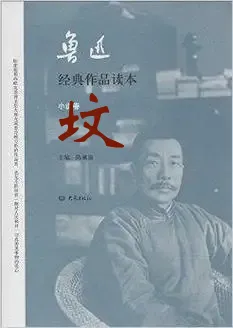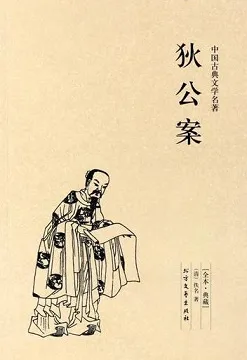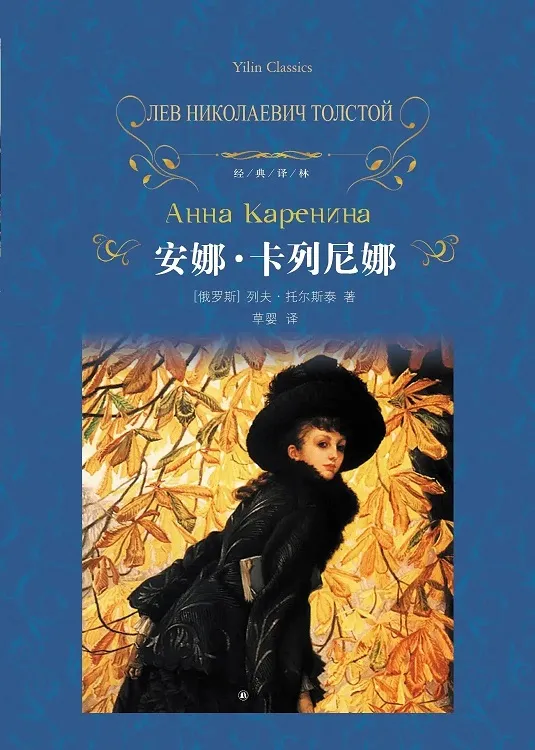AT nightfall Quentin went out on the roof, stretched his spine1 along the ridge2, and waited for Pacheco. The Cathedral clock was striking eight, when the bandit appeared, making his way toward the garret on all fours.
“Hey!” called Quentin.
“What is it? Is it you?”
“Yes.”
“Why are you waiting outside for me?”
“So we can talk without that woman hearing what we say. I have persuaded her to go home peaceably.”
“Very good. But listen, comrade; I’ve got a plan ready for something worth while.”
“I’m with you in everything. What have you thought of?”
“Of kidnapping La Aceitunera tonight.”
“But can it be done?”
“Absolutely. The Countess is going to the theatre. She will go in her carriage as usual, and if Cabra Periquito Gálvez doesn’t show up to accompany her, she will go home alone in her carriage. If Periquito does show up, and does go with her, we won’t do a thing; if she is alone, why, we’ll steal her away.”
“That’s all very well; but how?”
“First of all, I’ll see to it that the coachman gets[251] drunk so I can take his place; meanwhile, you go to the theatre, make sure that she is alone, then station yourself on the sidewalk opposite the lobby, and stay there quietly; if she comes out escorted, you light a match as if you were about to smoke—understand?”
“Where will you be then?”
“On the box. If the Countess is escorted, why, I’ll take her home, and we’ll leave the matter for another day. If she is alone, I’ll trot3 the horses as far as the Campo de la Merced, where I’ll stop; you get on—and away we go!”
“Very good. You’re a wonder, comrade! But let’s look coldly at the inconveniences.”
“Out with them.”
“First of all, the departure from this place. They are still hanging around the street, according to El Cuervo.”
“Ah, but do you think I am such an idiot as to go out through El Cuervo’s tavern4? Ca, man!”
“No?”
“Of course not.”
“Well, where, then?”
“You’ll see.”
“Good. That solves the first problem: second, I have to go to the theatre to see if the Countess is alone, and people know me; if one of the police....”
“Nothing will happen. Take this ticket. Steal in when the performance has begun, and go upstairs, open one of the top boxes which are usually empty, and if the usher5 comes in, give him a peseta. He’s a friend of mine.”
“Good. Now we’ll tell the woman, and be on our way. Shall we have supper first?” asked Quentin.[252]
“No; we must have clear heads. We’ll have supper at the El Pino farm, or—in jail.”
“You’ve spoken like a man. Let’s go.”
They entered the garret.
“Doña Sinda,” said Quentin, “we are going to crawl about the roof a bit.”
“Wait a moment, comrade,” said Pacheco. “They won’t do anything to me; but if they see you, they’ll tie you up,” and as he spoke6, he opened a wardrobe, took out a grey cloak, a kerchief, and a broad-brimmed hat.
“Who’s that for?”
“For you.”
Pacheco made a bundle of the things, and said:
“Hurry! I’ll go first, then the Señora, and then you, Quentin.”
They formed themselves in single file and began to move. The night was dark, threatening a storm; distant flashes of lightning illuminated7 the heavens from time to time.
Doña Sinda moved slowly and painfully.
“Come, Señora, come,” said Quentin; “we are near you.”
“My hands and knees hurt me,” she murmured. “If I could only walk on my feet.”
“You can’t do it,” said Pacheco. “You would fall into a courtyard.”
“Ay, dear me! I’m not going a step farther.”
“We’re going as far as that azotea.”
Doña Sinda yielded; they crawled along the ridge of a long roof, and came out upon the azotea. They leaped the balustrade.[253]
“Oh, dear! I’m going to stay here!” exclaimed Doña Sinda.
“But my dear woman, it’s only a little farther,” said Quentin.
“Very well then, we’ll go on alone,” said Pacheco.
“Are we going to leave her here?” asked Quentin.
The bandit shrugged9 his shoulders, and without more ado, leaped over the balustrade again. Quentin followed him, and the two men rapidly covered a great distance.
“Now be careful,” warned Pacheco. “We’ve got to go around this cornice until we reach that window.”
It was a stone border about half a metre wide. At the end of it they could see a little illuminated balcony window, which as it threw the light against the wall, made the cornice look as if it were on the brink10 of a deep abyss. They went along very carefully on all fours, one behind the other. As they reached the balcony, Pacheco seized the balustrade and jumped upon the stairway. Quentin followed his example.
“Do you know, comrade,” remarked Quentin, “that this is scary business?”
“Then too, that light is enough to drive you crazy. In the daytime it doesn’t scare you at all to come over it. Now then, put on your cloak and the other tackle.”
Quentin tied his kerchief about his head, put on the hat, wrapped himself in the cloak and the two men descended11 the stairs into a garden. Crossing this, they came out upon the street.
“What is this building?” asked Quentin.
“It is a convent,” replied the bandit. “Now, we[254] mustn’t go together any more. You come along about twenty or thirty paces behind me.”
Quentin followed him at a distance, and after traversing several intricate alleys12, they came out upon the Plaza13 de Séneca, and from there upon the Calle de Ambrosio de Morales, where the theatre was. A gas light illuminated the door, scarcely lessening14 the shadows of the street. The play had not yet begun. Pacheco entered a near-by shop, and Quentin followed him.
“You stay here,” said the bandit, “and when everybody has gone in, you follow. I’m going to the Countess’ house.”
People were crowding into the theatre; two or three carriages drove up; several whole families came along, with a sprinkling of artisans. When he no longer saw anyone in the lobby, Quentin left the little shop, entered the theatre, relinquished15 his ticket, climbed the stairs with long strides until he reached the top floor, and when he saw the usher, handed him a peseta.
The usher opened the door of a box.
“How is Señor José?” he asked.
“Well.”
“He’s a fine fellow.”
“Yes, he is.”
“I’ve known him for a long time; not that I am from Ecija exactly, for I come from a little village near Montilla; I don’t know if you’ve heard its name....”
“See here,” said Quentin, “I came here because I am a relative of the actor who takes old men’s parts, and I am interested in hearing the performance and seeing how he acts; if you talk to me, I won’t be able to hear anything.”
“Gonzáles? Are you a relative of Gonzáles?[255]”
“Of Gonzáles, or Martínez, or the devil! Take another peseta, and leave me alone, for I’m going to see what kind of an actor my relative makes.”
“Very well, very well,” said Quentin, and pushing the garrulous17 usher into the aisle18, he closed the door.
As there was scarcely any light up there, no one could recognize Quentin. The theatre was almost empty; they were giving a lachrymose19 melodrama20 in which appeared an angelic priest, a colonel who kept shouting “By a thousand bombs!” a traitor21 money-lender with crooked22 eyes who confessed his evil intentions in asides, a heroine, a hero, and a company of sailors and sailoresses, policemen, magistrates23, and others of the proletariat....
While Quentin was being bored in his heights, Pacheco, leaning against the wall of La Aceitunera’s house, was awaiting the return of her carriage from the theatre.
He did not have long to wait. The horses stopped before the gate, and before it could be opened, the bandit approached the coachman and said:
“Hello, Señor Antonio!”
“Hello, Señor José!”
“I want to talk with you a moment.”
“What about?”
“About some horses I am ordered to buy, and as you know so much....”
“I’ll be right out.”
The house gate opened, the coachman drove his carriage inside, and in a few moments rejoined Pacheco.
He was a talkative and gay little man.[256]
“Let’s go somewhere and have a little wine with our talk,” suggested the bandit. “You’ve got time?”
“I’m free until eleven-thirty.”
“It’s nine, now.”
They went into a tavern where Pacheco explained to his friend how the horses must be. The matter must have been arduous24 and difficult, for the coachman lost himself in a labyrinth25 of endless equinal considerations. The bandit kept filling and refilling his glass for him as he drank.
“Man,” said Pacheco, “today I was taken to a tavern where there was a superior wine that you can’t find anywhere else.”
“Really?”
“I should say so. Would you like to go and see if we can find it?”
“Well, you see I’ve got to go at eleven-thirty.”
“There’s more than time enough.”
“All right; let me know when it’s eleven o’clock.”
“Certainly, don’t you worry. Do you have to go back and get the Señora?”
“Yes.”
“And harness up the horses again?”
“No. I left them harnessed. When I get back from the theatre, I go through the gate, turn the carriage around in the patio26, and leave it in the entryway facing the street,—see? Then I go, open the gate, and I’m off.”
Pacheco conducted the coachman through side streets to El Cuervo’s tavern.
“But where is that tavern, my friend?” asked the little old man.
“Right here.[257]”
They went into the tavern.
“Bring me wine—the best you have,” said Pacheco, winking27 at El Cuervo.
The innkeeper brought a large jar and filled the glasses. The coachman smelled the wine, tasted it slowly, relished28 it; then he smacked29 his lips, and emptied the glass in one gulp30.
“What wine!” he murmured.
“Don’t you think it’s a little bit strong?”
“Well, that’s a good kind of a fault to have, comrade!”
Pacheco got up and said to El Cuervo:
“You’ve got to keep this fellow interested.”
El Mochuelo and Cantarote, the gipsy, came over to Pacheco’s table with the pretext31 that there was no light where they had been sitting, and began to play cards.
“Would you like to play?” said Cantarote to Pacheco.
“No, thanks.”
“And you?” the gipsy asked of the coachman.
“I? To tell the truth, I’ve got something to do. What time is it?”
“A quarter past ten,” said El Cuervo.
“All right, I’ll play a hand.”
“After all, what have you got to do?” asked Pacheco. “Just knock till they open the gate, and then climb up on the box....”
“No, I’ve got the key to the gate here,” remarked the coachman, patting his vest pocket.
Pacheco looked at Cantarote, and made a gesture with his hand as if he were picking up something. Cantarote lowered his eyelids32 as a sign that he had understood, and with the utmost neatness put his hand into the old[258] man’s vest, took out the key, and, holding his cards in his left hand, handed it to Pacheco behind the coachman’s back.
The bandit got up.
“Let me have a cap,” he said to El Cuervo.
The innkeeper brought one.
“Keep him busy for an hour.”
This said, Pacheco hurried to the Countess’ house, opened wide the gate, climbed to the box, and drove the carriage outside; then he closed the gate, climbed back again, and took his place near the theatre.
From his hiding-place, Quentin had discovered something curious and worthy33 of note. In one of the boxes near the curtain was the Countess, alone, with her back to the stage, and gazing at some one through her glasses. Quentin followed her look, and by bending low and leaning his body over the box, he discovered that the box at which she was directing her glances was occupied by the Governor and two other persons; but the Countess also looked elsewhere: toward a parquette where there were a toreador and several young gentlemen.
“Which is she looking at?” Quentin asked himself. “Is it the Governor, or the toreador?”
The Countess rested her opera glasses absently upon the railing of the box.
“Perhaps she isn’t looking at any one,” thought Quentin.
On the stage, they were spilling an ocean of tears: the priest, with his snow-white hair, saying, “My children” everywhere he went, was busy making his fellows happy.
The Countess cast an absent-minded glance at the stage, picked up her glasses, and took aim.[259]
“It’s the Governor,” said Quentin.
The woman’s glasses were lowered a bit, and he had to correct himself.
“It’s the toreador,” he remarked.
After many vacillations, Quentin realized that the Countess was playing with two stacks of cards, and was dividing her glances between the First Authority of the province, and the young toreador, so recently arrived in cultured society from a butcher shop in the district of El Matadero.
The Governor, very serious, very much be-gloved, looked at the woman; the little toreador, with his foot on the parquette rail, preened34 himself and smiled, showing the white teeth of a healthy animal.
At the beginning of the last act, the toreador, who had been concealed35 behind the curtains of the parquette, appeared with a square piece of paper that looked like a note in his hand; he showed it cautiously, and twisted it about his fingers.
Presently the woman, looking at the stage, nodded her head in the affirmative.
The play was about to come to an end; every one on the stage, from the priest and the two turtle-doves to the colonel—by a thousand bombs!—was happy; only, he of the crooked eyes had been seized by the police at the height of his evil machinations. Quentin opened his box, descended the stairs by leaps and bounds, and took up his post opposite the entrance to the theatre. Fat drops of rain commenced to fall, and the thunder kept grumbling36 overhead. There were two carriages at the door of the theatre. Pacheco was not in the first, and Quentin could not tell whether he was in the second one or not.[260]
The audience began to come out of the theatre; when they saw the heavy rain drops that spattered the sidewalk, some hesitated to leave, then they made up their minds and began to hurry along, pressing close to the walls of the houses.
A fat lady with her escort entered the first carriage, and drove off toward the Plaza de Séneca. The second carriage drew up. Pacheco was on the box. He and Quentin glanced at each other. Everything was going splendidly.
Just then the Countess appeared in the lobby of the theatre wrapped in a white cape37; she opened the door of the carriage and climbed rapidly into it. Behind her appeared the toreador, and as the carriage was about to move off, he held out his hand and threw a note through the window.
Pacheco clucked to the horses, and the carriage started up the street toward the confluence38 of the Calle del Arco Real and the Cuesta de Luján. Quentin started off rapidly in the direction of the Campo de la Merced; he ran as fast as his legs could carry him, fearing all the while that he might meet some watchman who would recognize him. When he reached the appointed place he was played out. He waited, soaked in a torrential downpour. Before long, a carriage came in sight and stopped before him. Quentin opened the door and stood upon the step. A woman screamed shrilly39. Quentin closed the carriage door; there came two tremendous cracks of a whip; and the coach moved off through the rain and obscurity, drawn40 by the horses at a full gallop41....







